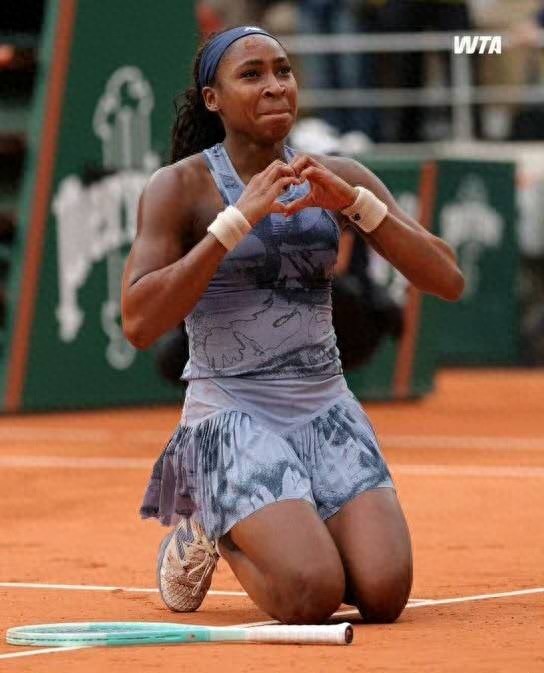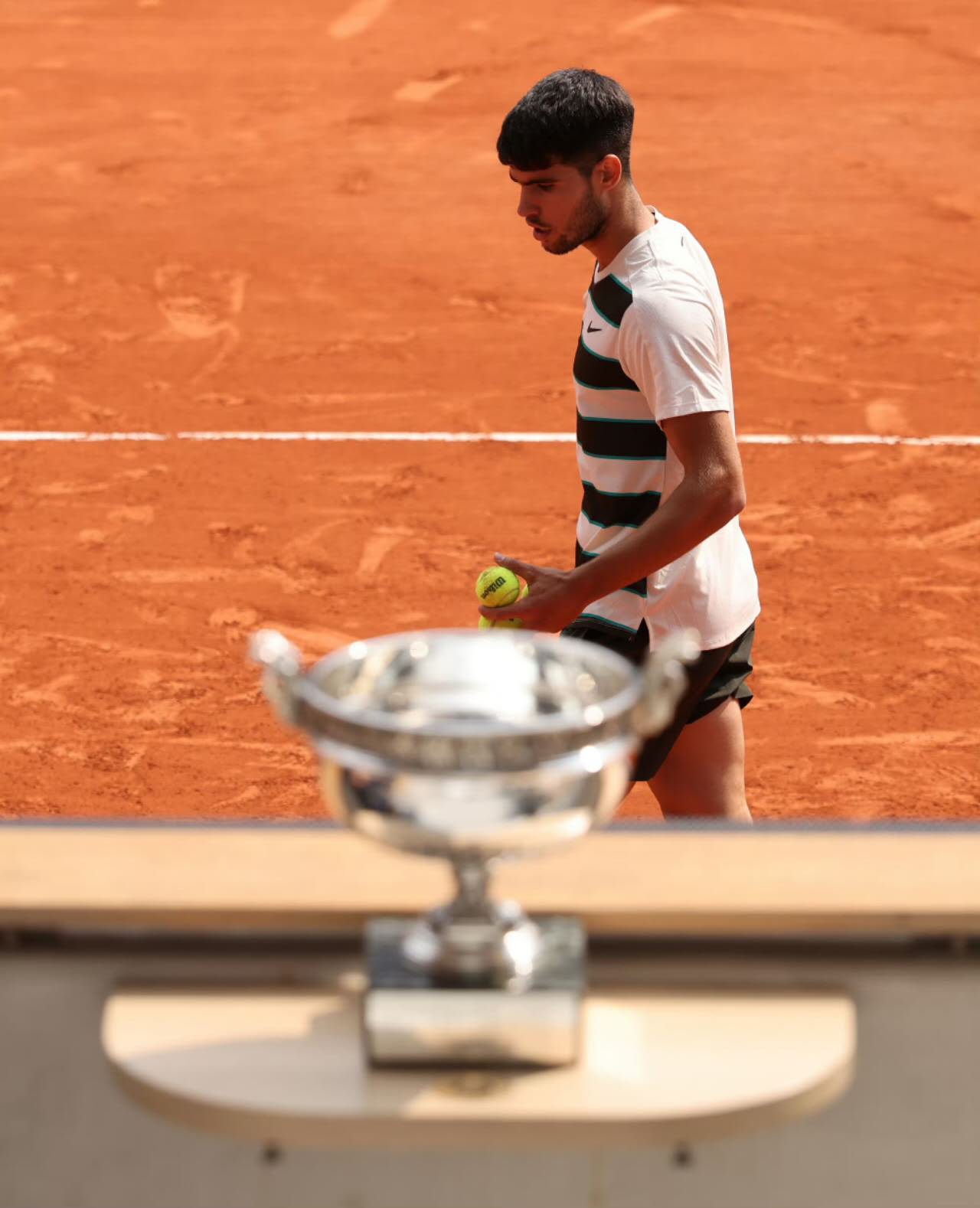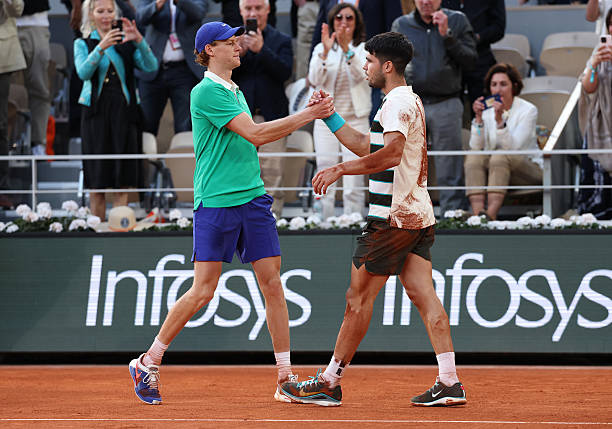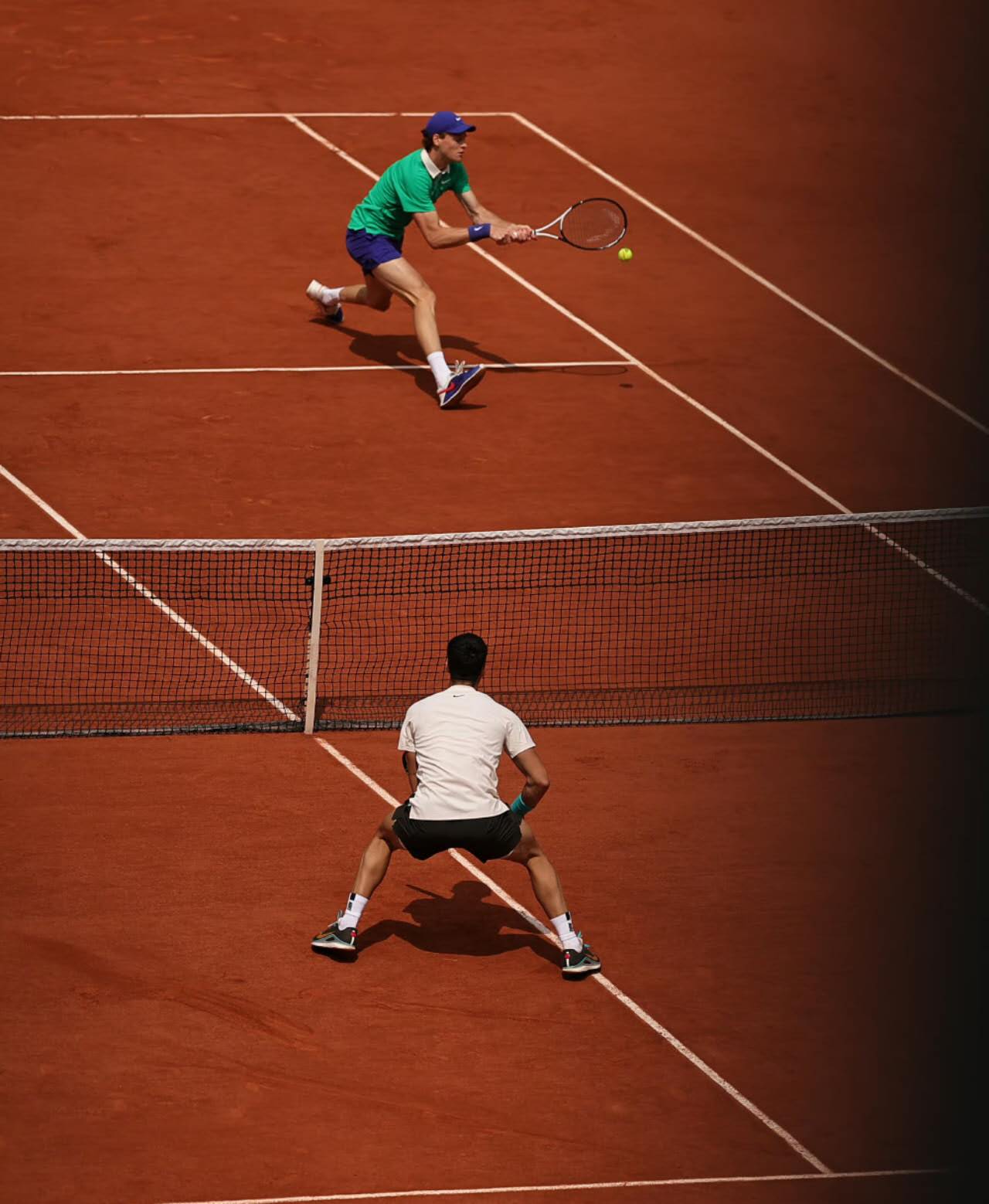The most personable French Open? But it is like a mirror that reflects the lack of trust culture in domestic tennis
"Sports don't make heroes, it just strips away the disguises of mortals and reveals the true nature of heroes."
At this year's French Open, the sportsmanship of the three players impressed the fans: the women's singles champion Gauff did not make small moves, did not change rackets, did not tie shoelaces, did not wait for the audience to sit down, served without delay, did not question the referee's penalty, did not argue with the referee, respected the referee's punishment, and her character of not liking, not annoying, not angry, not angry, not arrogant and impatient made fans admire; The two players in the men's singles final are also worthy of praise, there is no leakage of irritable emotions, no medical time-out operation, no use of the rules of bathroom time-out, respect for the referee's punishment, and what is even more rare is that both sides have corrected the judgment that is unfavorable to the other party. Therefore, this year's French Open was also selected by netizens as "the most sporting French Open"!

Sports are not only the gladiatorial arena of competitive sports, but also a magnifying glass of human nature.
1. The chaos of the trust system in domestic tennis: the "gray strategy" on the court
The sportsmanship of the three players at the French Open is indeed admirable, but the reality is that it has fallen into a mess. Although the professional arena can use Eagle Eye technology and professional referees to ensure fairness, many low-level tournaments and many amateur tennis in China are mired in the quagmire of "trust system" alienation.
This is not the first time I have talked about the "lack of trust culture" in domestic tennis, but the reason why I have repeatedly raised this issue is because it has never been taken seriously by all parties.
The so-called trust system, in which the players on both sides of the match judge the ball in/out of bounds without the supervision of the referee, is often used in low-level competitions and some amateur competitions. Ideally, it should be a litmus test of sporting integrity and a set of gentleman's rules, but in reality, this rule has become a breeding ground for "tactical trickery".

In recent years, the domestic culture of trust system has not only been seriously lacking, but many self-media bloggers who teach tennis have even bluntly said, "If you meet a cheater, you should go back and fight violence with violence!" "It's really a sadness! Once upon a time, it was also advertised that "the most fascinating quality of tennis is its rules", and this gentleman's game is not only a reflection of the morality of both players, but also a friendly atmosphere of harmony, friendliness, and respect. However, such a statement has become a joke at the moment, and behind the increasing admiration of "countering violence with violence", should we also think about it: when despicable means are packaged as "wisdom of the rivers and lakes", where should our conscience be? What should be the original intention of the trust rule?
2. Cultural Loss: From Flaunting to Moral Hollowing
In recent years, people of insight in China have actually paid attention to the lack of trust culture in China, and have begun to guide this phenomenon with actions.
For example, the most famous is the Hefei University Tennis Tournament to carry out tennis competition activities with "0 referees", through the education of the rules of the athletes, step by step, to achieve some good results. However, behind its advertised high quality, there are still many hidden dangers. In sporadic reports, the arguments between players "you just served in the wrong area" and "this ball went out of bounds" made people feel harsh, and the frequent occurrence of behavioral conflicts exposed the fragility of rules in front of the game of human nature.

What we need is not only to understand the rules, but also to respect the rules and make "the rules above all else"!
In my opinion, the root cause of the chaos of trust in China lies in the structural lack of Chinese tennis culture. For a long time, Chinese players must have been regarded as "tools to win medals", and sports and education have been divided, ignoring the cultivation of athletes' personalities. For example, the most famous incident of the year was Sun Jinfang's public criticism of Li Na's poor performance because of her lack of culture. However, she did not reflect on the system's disregard for the humanistic qualities of the players.

In addition, in recent years, the domestic tennis circle fan circle culture has been rampant, flaunting individual athletes with outstanding ability, only focusing on the athletes' achievements, but not the athletes' "court image". The most typical is Li Na, who was praised as "national pride" when she won the French Open, but her trough became a "target of criticism". There is also Zheng Qinwen, who is now widely reported by the domestic self-media, but ignores the fan-circle-based culture behind it, resulting in the final victory and defeat in the hearts of the people, and the utilitarianism of victory and defeat crushes the enduring awe of sportsmanship.
In China, it is often considered the responsibility of the spectators to repeatedly empty the ball or ask the spectators to sit down many times, while the players' own emotional catharsis and questioning the fairness of the on-field penalty are often selectively forgotten. Similarly, in the Chinese amateur arena, a graceful victory often goes unnoticed by the media, but a "tricky victory" may be praised as "smart" rather than nailed to the "pillar of shame".
3. There is a long way to go: Chinese tennis needs to turn morality into quantifiable value
Last year, I suggested in an article that domestic low-level tournaments should establish an "integrity list" and ban players for life who seriously disrupt the order of the game and break the rules of the trust system in the game.
To save the trust system, we can't just talk about it, we need to make sports ethics change from an abstract slogan to a quantifiable value, and only if they suffer pain, they will reflect!
In fact, many netizens also have different views on how domestic tennis can achieve respect for the rules of the trust system. For example, some netizens suggested that at present, it is actually possible to try to introduce a "moral score" system in some low-level events and amateur competitions, where players evaluate each other's integrity, and those below the threshold are banned! Some netizens suggested that a "Controversy Ball Challenge Ticket" could be set up to limit the number of controversy ball rematches! Some netizens also said that the most important thing is to use the power of social role models to reconstruct culture. For example, a "sports ethics class" could be added to youth training, using cases such as Del Potro's comfort to opponents and Acre handicap as teaching materials, and to prioritize spiritual inheritance over technical training.

In fact, the reason why tennis is so fascinating is never the metal weight of the trophy, but the rare soul embrace between people in the game. When del Potro says "think of your child" to a crying opponent; When Acre returns the shot that went out of bounds; When Sinner reversed his opponent's line and silently walked to the other end of the field, sport transcended competition and became a temple of humanity.
If Chinese tennis is only obsessed with copying "the next Li Na", ignoring the "Gauff-style silence", and continuing to let those thieves on the court carnival in the "tricks", but mocking the "pedantic" of those who take the initiative to score points, then no amount of gold medals will fill the depression of dissatisfaction.(Source: Tennis Home Author: Lu Xiaotian)







 Links
Links
 Contact
Contact
 App
App


